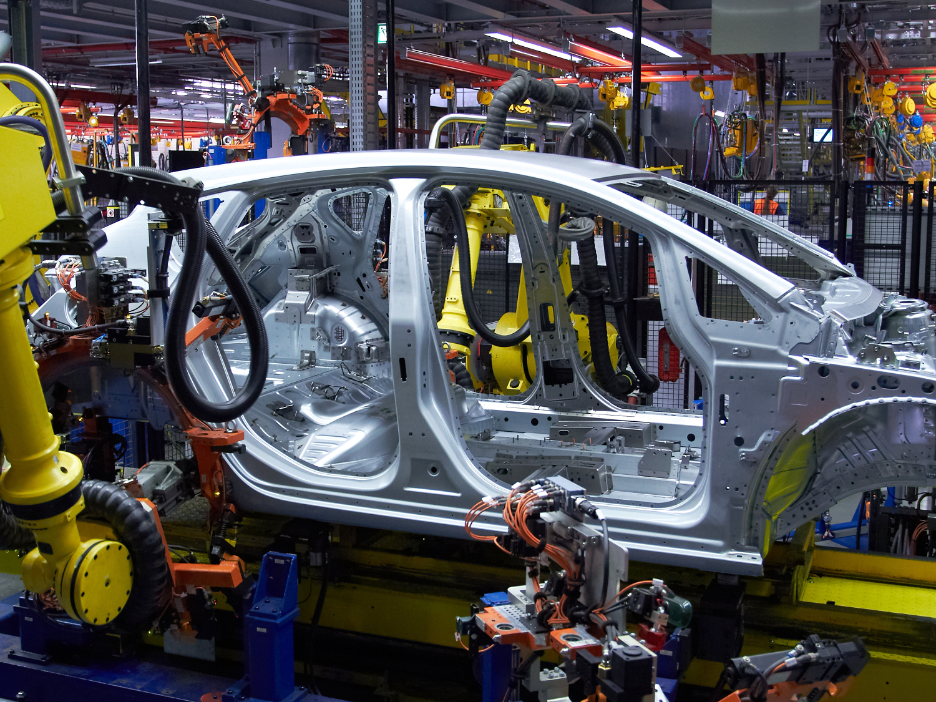As the automotive industry continues to evolve, the demand for innovation has never been greater. With the goal of achieving greater fuel efficiency, improved performance, and enhanced safety, automotive engineers are turning to lightweight metals to meet these objectives.
The use of lightweight materials is revolutionizing the way vehicles are designed and manufactured, paving the way for a new era of automotive engineering.
Below, this automotive metal supplier in Milwaukee, Wisconsin is going to discuss the pivotal impact of lightweight metals in the world of automotive engineering, and we’ll also discuss some of the challenges that come with using these metals.
Lightweight Metals Are Revolutionizing Automotive Engineering
The quest for lightweight components has become a central theme in automotive engineering, driven by the push to reduce vehicle weight and improve fuel economy without sacrificing performance or safety. In this pursuit, lightweight metals have emerged as the cornerstone of transformative design strategies, offering a compelling alternative to traditional materials. Among the standout players in the realm of lightweight metals, aluminum and magnesium have garnered significant attention for their remarkable properties and versatility.
Aluminum, renowned for its high strength-to-weight ratio and exceptional formability, has become a top choice for automotive manufacturers in recent years. From body panels and structural components to engine blocks and suspension systems, aluminum’s widespread adoption has enabled substantial weight savings and enhanced overall vehicle efficiency.
Similarly, many automotive metal suppliers in Milwaukee, Wisconsin now work with magnesium, Thanks to its unparalleled lightweight characteristics and impressive machinability, it has found application in critical automotive components, contributing to significant reductions in vehicle mass and improved fuel economy.
The utilization of advanced high-strength steels and composite materials further underscores the pivotal role of lightweight metals in revolutionizing automotive engineering. Given the lightweight property of these materials, engineers can achieve substantial weight reductions while maintaining structural integrity and safety standards. The evolution of lightweight metals is reshaping the landscape of automotive design and manufacturing, driving unprecedented levels of innovation and performance.
Challenges and Opportunities in Using Lightweight Metals
While the integration of lightweight metals presents compelling opportunities for automotive engineering, it also brings forth a unique set of challenges that must be navigated to fully realize the potential benefits.
One of the primary obstacles is the inherent complexity of working with unconventional materials, which may require specialized expertise, equipment, and fabrication techniques. From alloy development and material testing to production processes and supply chain management, the utilization of lightweight metals demands a comprehensive understanding of their unique properties and performance characteristics.
Moreover, the cost implications associated with the adoption of advanced materials pose a significant challenge for automotive manufacturers.
While these metals offer substantial advantages in terms of weight reduction, performance enhancement, and sustainability, their production process is often more complex than it is with traditional metals. This results in increased production times and costs for automotive metal suppliers in Milwaukee, Wisconsin.
Another crucial aspect to consider is the recyclability and sustainability of lightweight metals in the automotive sector. As the industry continues to prioritize environmental stewardship and circular economy principles, the ability to effectively recycle and repurpose advanced materials becomes paramount. Developing closed-loop material systems and implementing efficient recycling processes are essential for minimizing the environmental footprint of lightweight metals and ensuring their long-term viability in automotive applications.
Despite these challenges, the utilization of lightweight metals in automotive engineering offers a myriad of opportunities for driving sustainable innovation and performance advancements. Through strategic partnerships, collaborative research endeavors, and continuous technology development, automotive manufacturers and suppliers can overcome the barriers associated with lightweight metals and unlock their full potential in reshaping the future of automotive engineering.
Looking for an Automotive Metal Supplier in Milwaukee, Wisconsin?
The integration of lightweight metals is propelling the automotive industry towards a future defined by advanced performance, sustainable design, and unprecedented innovation. As automotive engineers embrace the potential of lightweight metals and address the challenges of material innovation, the stage is set for a new era of transformative automotive engineering.
Are you ready to partner with a reputable automotive metal supplier in Milwaukee, Wisconsin that can provide the lightweight metals needed for your automotive manufacturing projects? If so, Banner Industries is the company to call. With a commitment to excellence, expertise in material selection, and a comprehensive range of lightweight automotive-grade metals, we are here to support the advancement of automotive engineering with cutting-edge metal solutions. Contact us today at (800) 950-3652 to discuss your project.







